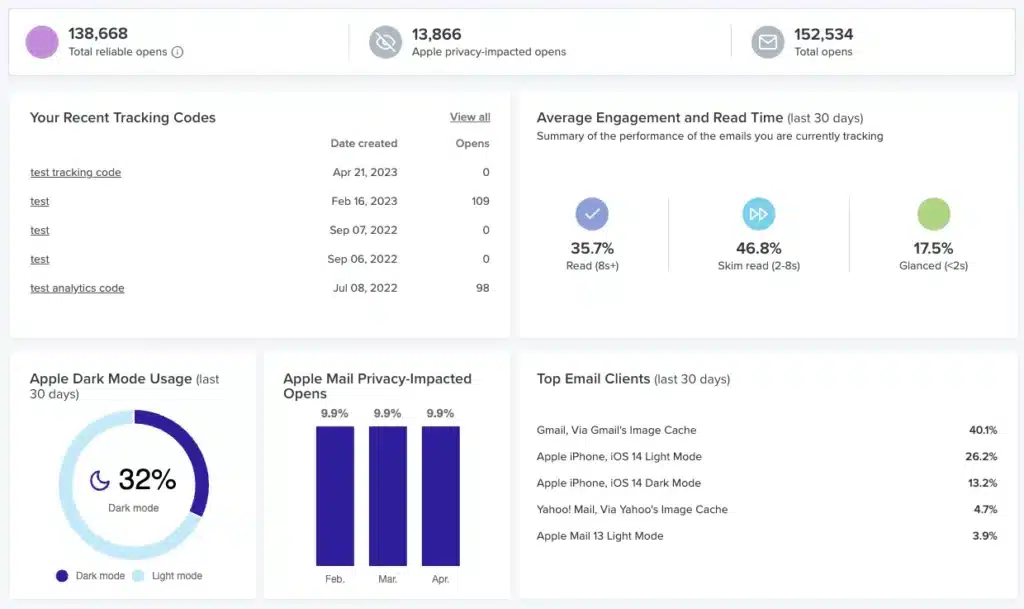Key points ✨
|
Send email to customer— Just like Gmail, Apple Mail, and Outlook — operating systems and devices are changing all the time. Because there are over 300,000 different ways Email can be rendered, Email QA Test In fact, this is the only way to verify how your email will look when it arrives in your subscriber’s inbox.
But checking how each email appears across multiple email clients and devices is time-consuming. There is a better way.
We compiled this list Email quality check Testing and monitoring best practices to help you test thoroughly for a great experience Email marketing campaigns Get out the door faster.
Table of contents
Why testing is non-negotiable for email marketing today
300,000. That’s all the different ways an email can look. No one can test so many variants, but you can and should test the most common ones.
If you don’t test your email, you’re taking a big gamble that everything will look and work as planned on all devices and email clients. Are you a gambler?
Even if you enjoy playing blackjack occasionally, there are too many risks without testing, including:
- broken link
- Inaccessible and unreadable text
- Login spam
- Lost ROI
- Poor customer experience
- brand reputation
Enhance your email strategy
Get expert insights and industry benchmarks from the latest State of Email report. Up your email game.
Types of Email Testing: What You Need to Do
Email testing can mean many things. Hopefully for you, this means checking out all the things. After all, you wouldn’t jump out of a plane without checking your parachute, right?
Okay, maybe that’s a little dramatic, but the test might be different 36:1 ROI and a 10:1 ROI. Here are some common types of email testing that every marketer should check out.
rendering
As the name suggests, this is it: check what your email looks like. But it’s not just about sending an email to yourself and looking at it, you should also test it on all the major email clients (desktop and mobile) that your customers use.
With Litmus you can test and fix rendering issues in over 100 popular email clients at build time. Review your links, images, tracking, and other key elements before sending.
Link monitoring
Just because you checked all of your links before scheduling your email doesn’t mean they will continue to work as planned. Email clients change every 1.2 days, and each change can cause your links to break. Either double check everything before sending or use a tool like Litmus Email Guardian Links are monitored for you 24/7.
dark mode
Dark mode started causing headaches for marketers back in 2018, but luckily it’s much easier to test and optimize now. Optimization is also important because more than a third of users Open email using dark mode.
Litmus provides a toggle so you can see what all email previews will look like in dark mode. We also provide convenient features such as two versions of a single poll for both modes.
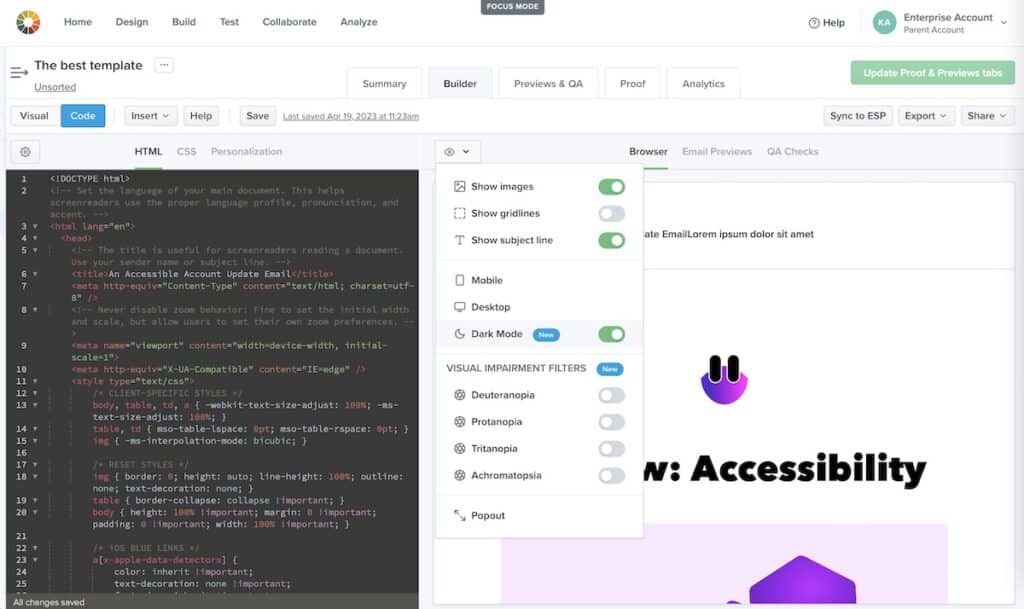
spam filter
Has anyone else had nightmares about getting into the spam folder? 70% of emails show at least one spam-related issue that could prevent them from reaching your inbox, which is why it’s so important to test them before hitting send.
Litmus scans your email against over 20 different spam filters, checks if you have been blacklisted, and verifies your email authentication. Then use our actionable advice on how to do it Improve your delivery capabilities.
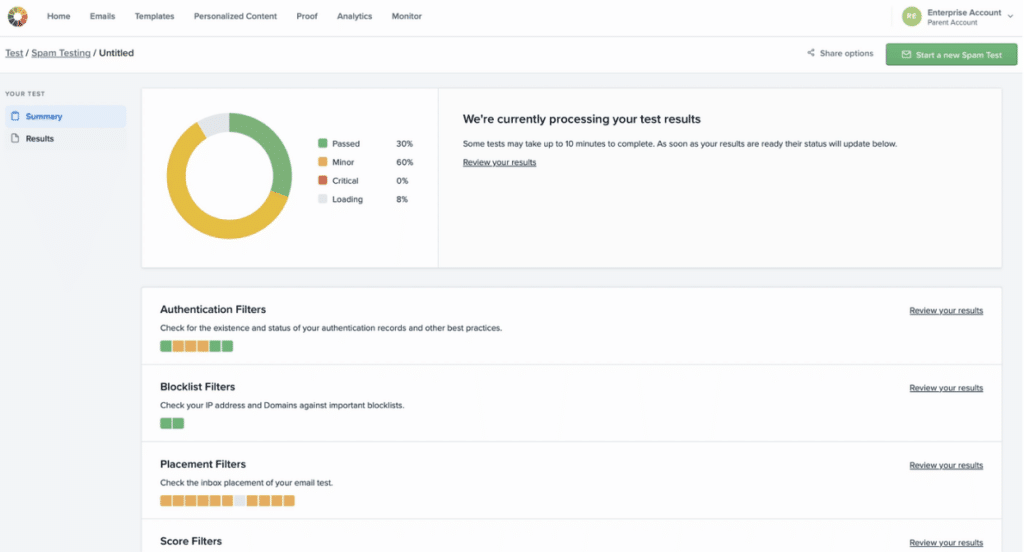
The spam folder no longer exists
Implement best practices to keep your emails out of spam folders. Improve your deliverability and reach more inboxes.
Accessibility testing
Checking email accessibility or adhering to accessibility best practices has been standard advice for years. Unfortunately, email marketers are slow to incorporate this into their processes, which can damage their relationships with a quarter of their subscriber lists.
There are tools and checklists that can help you make your email accessible and ensure you don’t miss anything. Litmus offers over 40 accessible checks, including missing alt text, email hierarchy, text alignment, and more.
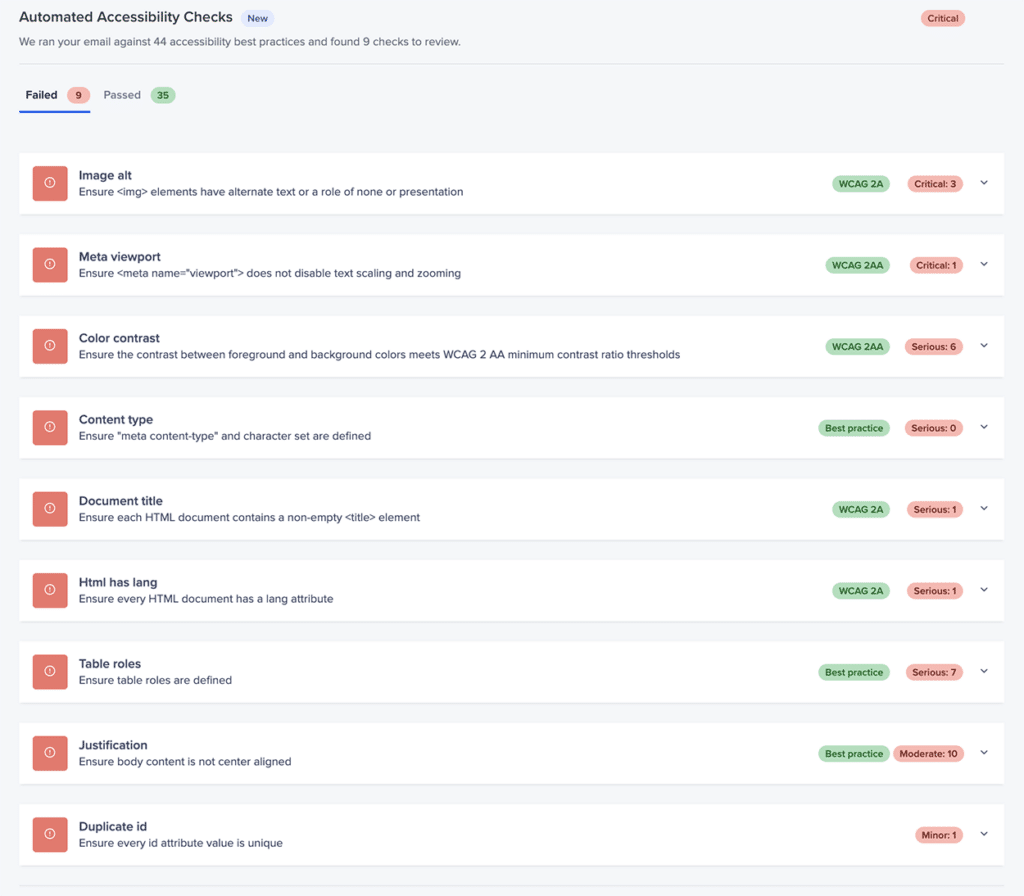
Loading time
Attention span is short. If your email loads large images, it may take long enough to load causing subscribers to bounce. Always check image load times and make adjustments to make them as fast as possible.
Litmus loading speed check shows:
- How many images are in your email.
- The total size of all images.
- Total time required to load all images.
- The size of each image and the load time of each image.
- Broken image with red X.
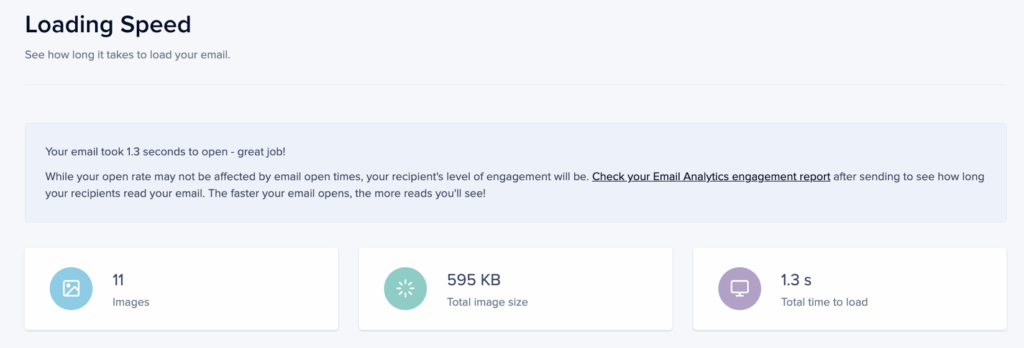
hint: Learn more about Litmus preview and QA pre-shipping testing this Help Center →
Email testing workflow
There is no right or wrong order for testing emails. The main question you should ask is: “Are you testing enough?”
Testing is typically performed between pre-send testing and quality inspection and post-send test analysis. But QA actually starts much earlier, during the framework and email design stages.
You can and should run tests or conduct thorough reviews during these stages of the email creation process. (hint: both)
1. Email frame creation: Determine which elements to use, which tests to run, etc.
2. copywriting: No writer is perfect. Copy should be reviewed to ensure it is on-brand, meets accessibility guidelines, and has no silly mistakes.
3. Email design: Depending on the size and capabilities of the team, the design process may differ and testing will change accordingly. If the design is done in a tool like Figma or Adobe, developers should review it to make sure everything can be created in the email tool they use. The copywriter should also be consulted if the design changes character count or title.
4. Email building and coding: Many Litmus users test emails as they build them, so they can always fix problems, such as broken elements or incorrect rendering in a particular email client. This is also a good time Make sure your code is accessible. Other users prefer to build emails in ESP or other tools and then test them in Litmus.
5. Complete pre-shipment testing and quality assurance: Everything previously tested should be checked again. Bugs happen, but thorough QA makes it easy to scan for bugs that may impact your subscriber experience.
At this stage, you should run all tests such as spam, accessibility, image blocking and loading time, link functionality, etc. You should also cycle through all stakeholders who have provided feedback (if they haven’t already).
6. Email monitoring: Email clients change every 1.2 days, and each change has the potential to break something in your carefully tested emails. Careful marketers will also launch an email monitoring system such as Litmus Email Guardian. This will alert you to unexpected address changes after you test but before the email is sent.
7. Email sent: Has it been sent? It’s a scary feeling when you check your email analytics and realize something went wrong and it was never sent.
8. Deliverability Insights: This is good! Once an email is sent, how do you know where it arrived, or if it made it to your inbox? pull Deliverability Insights Helps you prioritize problem areas so you can send more messages to more people.
9. Performance tracking: One of the most important parts of the workflow is analyzing the execution of a send. It tells us a lot of things, like what content resonates, whether that quirky subject line attracts subscribers or scares them away, whether they engage with the site after opening your email, and more.
Too often, teams spend most of their time preparing to send emails and not enough time analyzing performance to make the next email even better. Similar tools Litmus Email Analytics It can even be integrated with ESP and other tools to extract all data into one place.
A few years ago, we designed this fun infographic to help you decide whether to test more:
Bottom line: You can never test your email too much.
Enterprise Email Testing: Scale, Compliance, and Collaboration
If a startup has 3 people involved in the email creation process and a mid-sized company has 6 people involved in the email creation process, you can bet that there are 10+ opinionated stakeholders in an enterprise-level company.
The test is much the same, but with the added nuance of multiplayer participation. The creation process of a marketing email can range from less than a few days to more than two weeks, especially if legal or external partners are involved.
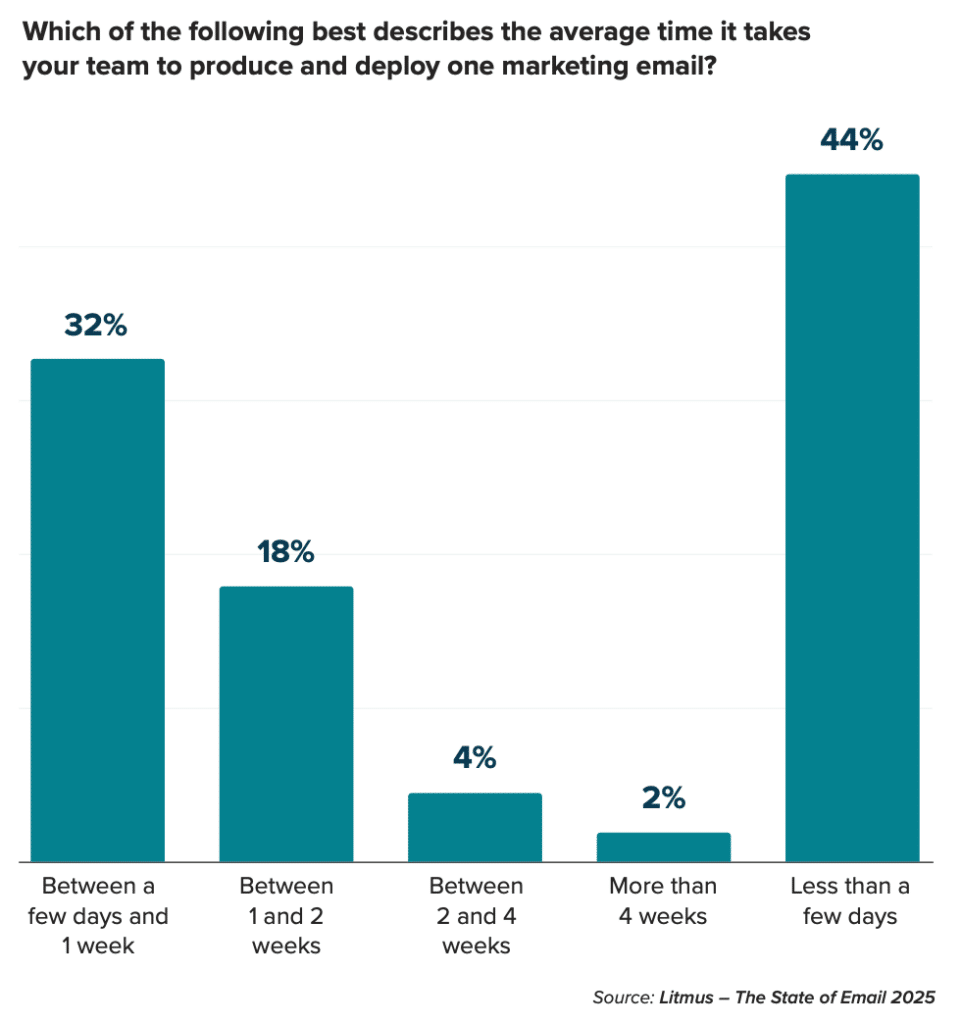
There are some tools out there like litmus proofto help speed up the process. Litmus Proof brings feedback into a tool. Stakeholders can view and respond to each other’s comments, or you can create new versions to cut approval time in half.
Business email, simplified
Power your business email strategy with advanced testing, automation, and security that scales easily.
Build better emails with Litmus
Every part of the email creation process is important, but great design, interesting copy, and perfect personalization mean nothing if your emails are broken. This is why email testing is non-negotiable.
Litmus remains the same Rated as a top email testing tool. After all, that’s why Litmus was created in the first place. Litmus’ features now improve every part of the email creation process, including structuring, personalizing, monitoring, and analyzing your sendings.
Send with confidence
Preview emails, catch errors, and ensure accessibility in more than 100 clients. Cut QA time in half. Thanks for the litmus test.





